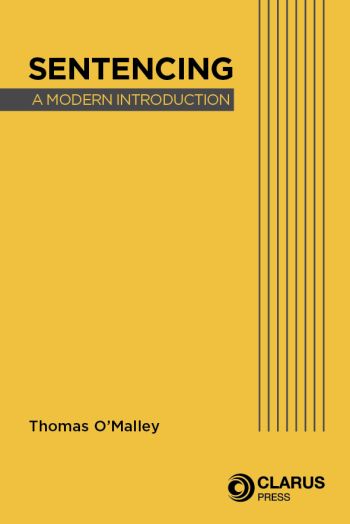
Sentencing is a topic of enduring public interest and, not infrequently, one of considerable controversy. Yet it is also a topic that has traditionally received scant attention in academic and professional legal education, although that is slowly changing. Criminal law practitioners, present and future, need to be well versed on sentencing law and practice, especially now that the Supreme Court and Court of Appeal have begun to issue guideline judgments on the sentencing of particular offences, while the Sentencing Guidelines and Information Committee established under the Judicial Council Act 2019 is charged with developing formal guidelines.
Sentencing: A Modern Introduction by Professor Tom O’Malley, SC is the first Irish textbook on sentencing, and it aims to fill a serious gap in legal education by providing a detailed and reflective account of key sentencing issues. These include the rationale for criminal punishment, distributive principles, the role of victims, sentencing children, techniques for structuring judicial discretion (including guidelines), sentencing options, collateral consequences of conviction and parole. A central theme of the book is that sentencing must be viewed as a process rather than an event. Hence, the judicial selection of a sentence is undoubtedly a key moment in the overall sentencing process, however, that decision in turn will have been influenced by decisions taken by various actors earlier in the process, while the impact of the penalty is often determined by later executive decisions.
While essentially concerned with sentencing law, this book incorporates insights from many other disciplines including philosophy, sociology, history and economics. It has a strong comparative focus, drawing on the experiences of other jurisdictions with sentencing systems broadly similar to Ireland’s in order to illustrate both the commonality and diversity of approaches to recurring issues in the sentencing of offenders.